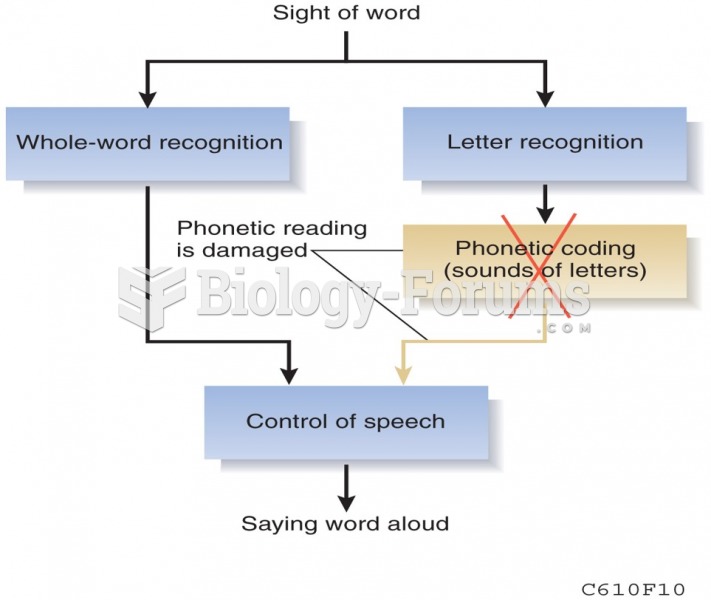|
|
|
Though methadone is often used to treat dependency on other opioids, the drug itself can be abused. Crushing or snorting methadone can achieve the opiate "rush" desired by addicts. Improper use such as these can lead to a dangerous dependency on methadone. This drug now accounts for nearly one-third of opioid-related deaths.
Bacteria have flourished on the earth for over three billion years. They were the first life forms on the planet.
Medication errors are more common among seriously ill patients than with those with minor conditions.
There are over 65,000 known species of protozoa. About 10,000 species are parasitic.
Less than one of every three adults with high LDL cholesterol has the condition under control. Only 48.1% with the condition are being treated for it.







